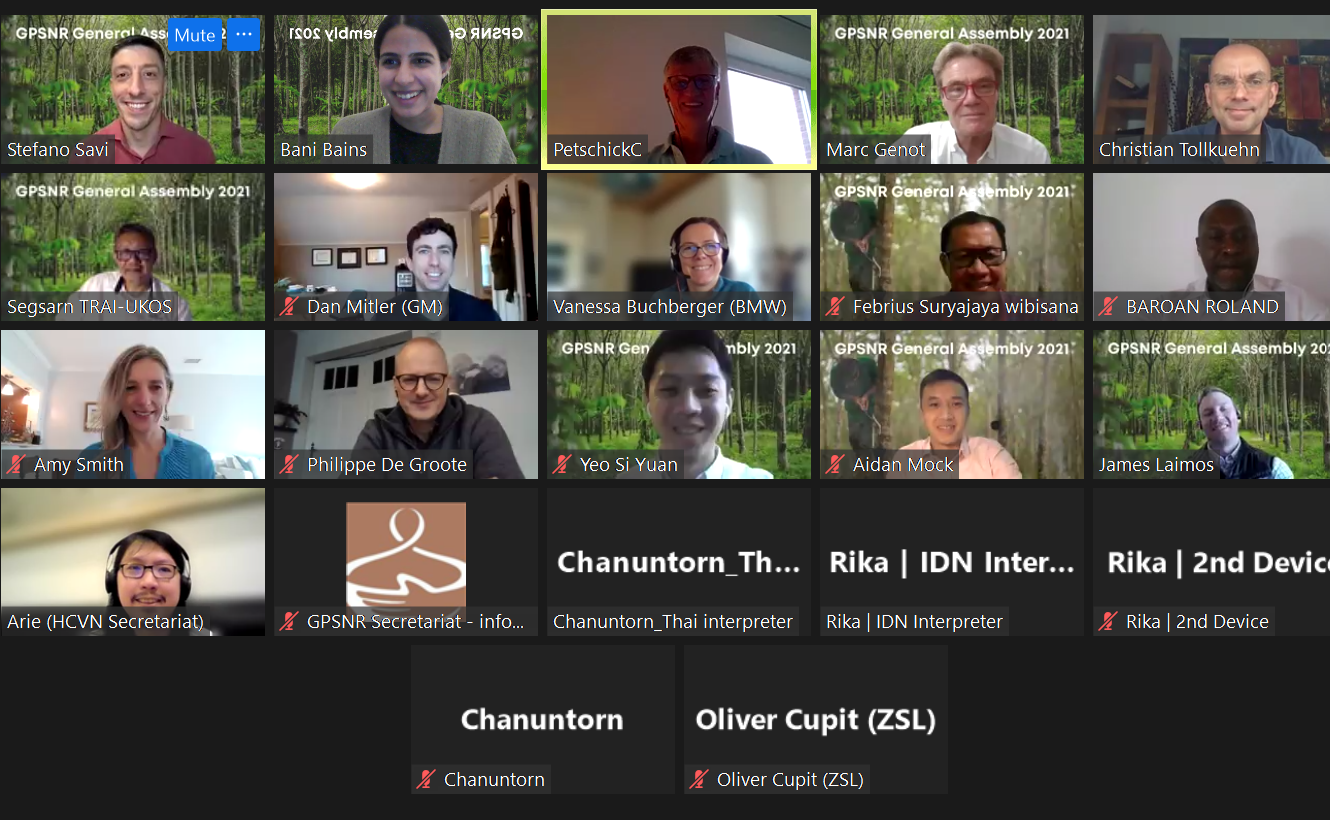Why conflict is crucial for meaningful sustainability initiatives
— Aidan Mock, Impacts and Assurance Manager
Since joining the Global Platform for Sustainable Natural Rubber in July 2020, I have spent about 3,000 hours working for the organization. Malcolm Gladwell popularized the controversial idea that it takes 10,000 hours to become an expert at something which means that I still have a long way to go. Reflecting on these two numbers at the end of last year, I started to wonder how much time it takes GPSNR as a whole to demonstrate progress. I was most curious about our brand new Reporting Requirements (RRs) which were approved at the General Assembly last year. The RRs will ensure that all GPSNR members have standardised sustainability data which can be tracked, monitored, and analysed to meet our goals on sustainability and equity. Needless to say, this is a crucial piece of work for the global rubber industry.
In June 2021, ZSL conducted 1.5-hour long focus group calls with each stakeholder category within GPSNR on the RRs. On average a total of 72 work hours were spent on this segment alone, with 12 people attending each of the four calls (12 x 4 x 1.5). In July, the Working Group convened its first meeting to discuss the proposed RRs in detail, resulting in another 43.5 work hours spent on the RRs.
The truly difficult months were October and November, where members met almost daily. An average of 19 people joined each of the 22 calls, which lasted about 1 hour and 45 minutes each time. In these two months, members spent a staggering 750 work hours discussing and negotiating the questions.
By the time Reporting Requirements were sent out for General Assembly vote, GPSNR members had spent more than a thousand hours discussing the RRs at the working group level. The actual number is likely higher as I didn’t include the time spent in category-specific meetings, executive committee discussions, and meetings that ran over their intended time limit. The time taken to complete the RRs eventually amounted to a third of the time that I’ve been working at GPSNR.
Image 2: A screenshot of the tabulation on hours spent discussing the RRs
With members all across the world, these meetings meant sacrificing hundreds of hours of family dinners, early morning sleep, and mid-afternoon siestas! Yet members made the choice to show up for meetings day-after-day, demonstrating remarkable commitment to the mission of GPSNR.
From an outside perspective, one thousand work hours of meetings were needed to create 100 questions, which means we had a progress rate of 10 work hours per question! Sceptics of GPSNR would be quick to point out this “slow progress”, and I will admit that there are faster ways to formulate a hundred questions. However, if you want to get more than 100 members across different stakeholder categories to agree on reporting questions for the entire industry, this is the fastest that it can go. I observed something similar at a grand scale at the COP 26 negotiations in Glasgow in October. Parties spent hours discussing the choice of wording in key phrases and some even used valuable time to simply express disagreement with the text.
If we are to achieve multi-stakeholder progress, we must adopt the same philosophy and spend time listening to the concerns and disagreements of all parties before we collaboratively develop solutions to address these concerns. This process of listening to each other and finding solutions will take time, maybe even a thousand hours, but this is the fastest and most thorough way to do it while still honouring the multi-stakeholder principles of the platform.
One of our greatest strengths at GPSNR is that members can disagree with each other openly. I believe that disagreement and healthy negotiation is a sign of a diverse membership that trusts each other to listen and address their concerns. Being able to work towards solutions across “category lines” is also a sign that GPSNR is maturing as we approach our 10,000 work hours of collective practice. I hope we can carry forward this momentum and growth into the new year. I hope we continue to treat the disagreements that will inevitably arise as opportunities to listen, demonstrate empathy, and build trust. I hope we come to see the multi-stakeholder enterprise as one that is conflicting by design and slow by default.
This year, we will work to define the Implementation Guidance and the Transparency Roadmap for the reporting requirements and I expect these topics to involve extensive discussions and quite possibly extensive disagreement. For members already part of this work, I look forward to speaking with you on our calls. If you are not yet part of these discussions but feel excited by the idea , feel free to write to us and we will ensure that you are included in the meetings that are soon to follow.
See you on a Zoom call soon!






